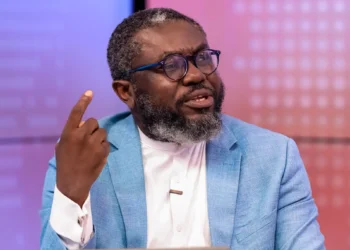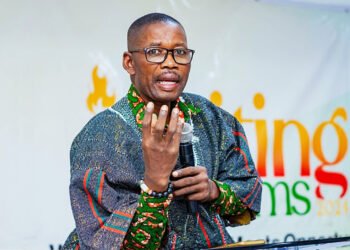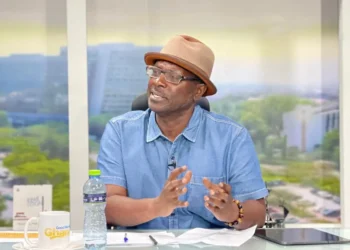Centre for Democratic Development (CDD-Ghana) fellow Dr. John Osea-Kwapong has emphasized that given the worrying nature of alleged corruption involving public officials, the government’s commitment to the fight against corruption, anchored in Operation Recover All Loots (ORAL), “must remain and must succeed.”
Dr. Osea-Kwapong noted that the damming nature of the infractions and alleged corruption issues usually contained in the Auditor General and the alarming revelations of alleged corruption activities involving public officials by the Attorney General will have serious consequences should Ghana not tighten its anti-corruption fight.
He queried the basis of these alarming alleged corruption activities that the Attorney General, Dr. Dominic Ayine, keeps revealing at his press conferences as part of the government accountability series, as well as the numerous infractions in the Auditor General’s report.
Dr. Osae-Kwapong used the notion of “Police Patrols versus Fire Alarms” to depict his dismay with how all these alleged corruption activities are carried out, considering the kind of public accountability architecture Ghana has.
According to him, “police patrols anticipate ‘wrongdoing’ and prevent it, while a fire alarm gives prompts after a crime has been committed.

“If your police patrols work, you should be able to anticipate certain things and even catch it before it happens. When it does not, then your other fallback position is what we call fire alarms.
“The alarm goes off because there is some investigative report, and then you respond to it. But sometimes, by the time the fire alarm blows, the damage would have already been caused.”
Dr. John Osae-Kwapong, CDD-Ghana Fellow
Dr. Osae-Kwapong further stated that there are internal auditors across all public sector agencies, which can be considered police patrols, so it becomes very difficult to understand why all these alleged activities were carried out without any of them flagging it.
“So, I keep asking myself that: how come that throughout the entire process, at some point, none of these police patrols were able to catch some of these allegations that perpetually are costing the nation so much?”
Dr. John Osae-Kwapong, CDD-Ghana Fellow
He noted that “perhaps those police patrols and fire alarms have been intentionally disabled.” Stating that “when they have been disabled, then they cannot even do what they are supposed to do.”
Dr. Osae-Kwapong, therefore, noted that if these acts of wrongdoing continue without any consequences meted out to those involved, there will be serious repercussions.
“Our anti-corruption fight, and especially the government’s commitment to ORAL, must remain and must succeed.
“Otherwise, you would end up, like I said, otherwise you are going to end up in a place where citizens are going to start thinking that public resources are ‘free for all,’ and there are no consequences for engaging in some of these alleged acts.”
Dr. John Osae-Kwapong, CDD-Ghana Fellow
Dr. Osae-Kwapong also questioned the real motivation behind the quest to be in public service. He questioned that if we will keep seeing these activities almost all the time, then is the quest to get into public office about serving “in the best interest of the nation? Or is it to pursue some narrow, selfish interest?”

Ghana’s Public Accountability Architecture
The CDD-Ghana fellow emphasized that when he reads or hears about all these alleged corruption cases involving public officials, then the question to ask has to do with the kind of accountability architecture that regulates public sector activities.
“I am just amazed to see all the provisions in the Constitution, in statutes, in acts, the different agencies, the different public professional bodies, whether it is the Public Services Commission, the Civil Service, all the rules around the code of conduct, and the do’s and don’ts around bribery, nepotism, and all of those things.”
Dr. John Osae-Kwapong, CDD-Ghana Fellow
He emphasized that Ghana has “an amazing public ethics architecture in place.” However, the question remains: how do all these alleged corruption activities get through this accountability architecture in place?
“Is it that, as Professor Kwesi Prempeh said, we have them, but we have intentionally found a way to disable them so that we can get around it and make sure we can get away with some of these things?”
Dr. John Osae-Kwapong, CDD-Ghana Fellow
He therefore emphasized the need for government and other stakeholders to tighten the anti-corruption fight and make sure that all accused persons are taken through due process to defend themselves.
READ ALSO: Oil Prices Surge Over 4% as U.S. Sanctions Russia’s Oil Giants























